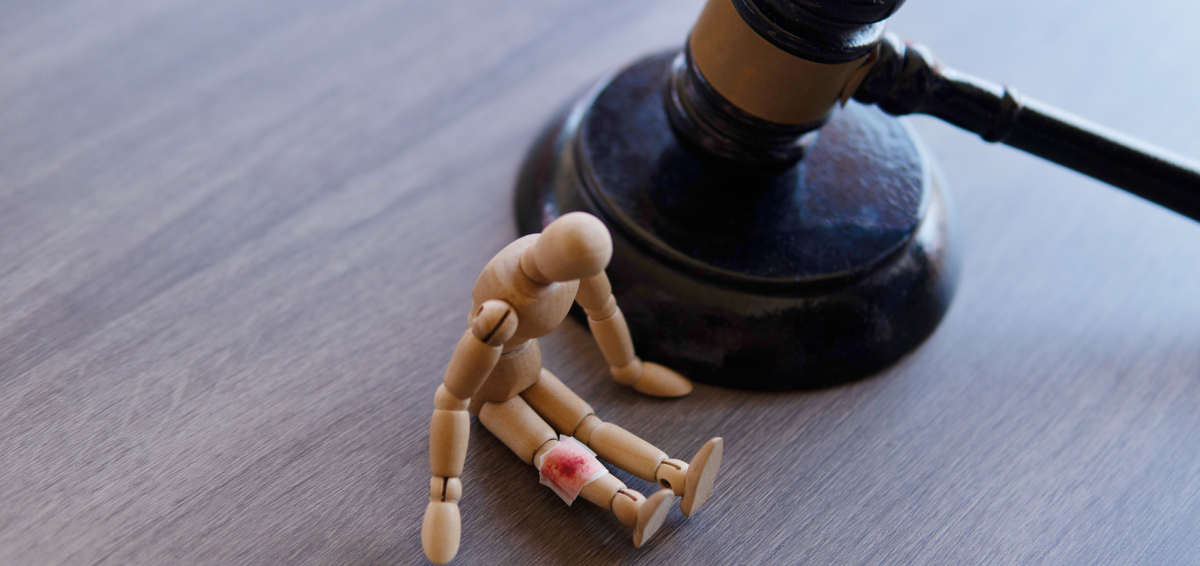How Pre-Existing Injuries Affect Your Personal Injury Case

Knowing how previous injuries impact your personal injury case is critical to ensure fair compensation. When dealing with a personal injury claim, it’s crucial to understand how prior health conditions can affect the result. In this blog post, we will discuss what a pre-existing condition means, the various types, the Eggshell Skull Rule, and proving aggravation of a pre-existing condition in detail below.
What Is a Pre-existing Condition?
A pre-existing condition can be any injury, sickness, or medical situation that was already present before the accident or incident. It may include chronic illnesses or past injuries that could have been dormant or controlled when the new incident happened. Recognizing a pre-existing condition holds importance because insurance firms and opposing parties frequently examine these conditions closely to reduce or reject claims.
In Florida, personal injury law does take into account pre-existing conditions. However, it concentrates on whether the accident made these conditions worse. This law’s main function is to compensate for making existing problems more severe rather than not considering them at all.
Different Types of Pre-existing Conditions and Injuries
Different kinds of pre-existing conditions could affect a personal injury case. These may include:
- Chronic Illnesses: Diseases that continue for a long time, like diabetes, arthritis, or asthma, are known as chronic illnesses. These illnesses need continuous medical care and might make personal injury claims more complex.
- Previous Injuries: Old injuries caused by accidents, like fractures or spinal injuries, are termed pre-existing conditions. Even if these wounds were cured, they may still hold importance in a fresh personal injury claim.
- Degenerative Conditions: Things such as degenerative disc disease or osteoarthritis can become worse gradually. These kinds of conditions frequently get attention in personal injury situations because it can be challenging to figure out exactly how much the accident has made them more severe.
- Mental Health Conditions: Personal injury cases also take into account any mental health conditions that a person may already have, like depression or anxiety. The accident could make these conditions worse by adding stress and trauma to them, which would affect the total claim.
The Eggshell Skull Rule
The Eggshell Skull Rule, also known as the rule of “take your victim as you find them”, is an important legal principle. It states that a defendant must accept a plaintiff in their current state, regardless of any pre-existing health conditions or vulnerabilities they may have had. This means the defendant is fully responsible for all injuries caused to the plaintiff, even if they were more prone to harm due to prior health issues.
The eggshell skull rule is aimed at preventing any penalization based on a victim’s vulnerabilities. For example, if a person with an earlier back issue gets a more substantial injury from an accident, the one who is at fault cannot claim that they should not be responsible because of this pre-existing condition.
How Do You Prove the Aggravation of a Pre-existing Condition?
Demonstrating the aggravation of a pre-existing condition necessitates significant proof and usually entails meticulous medical documentation. These are some of the things you can do to prove that your condition has worsened:
- Obtain Comprehensive Medical Records: Collect all medical documents concerning your previous health issue and the fresh injury. These records serve as a starting point for your condition before the accident, aiding in showing how the occurrence worsened it.
- Seek Immediate Medical Attention: After the accident, it’s crucial to find medical help quickly. Doctors can record all the new injuries and any worsening of earlier conditions. Getting medical care without delay benefits your healing process and builds up a strong case in your favor.
- Use Expert Testimony: Doctors could show how much the accident increased your previous health issue. They might discuss and compare your condition before the accident with how it became after, offering their expert viewpoint about whether this incident made things worse for you, medically speaking.
- Document All Symptoms and Changes: Maintain a thorough record of all symptoms and alterations in your state following the accident. This documentation might involve recording pain degrees, restrictions in everyday activities, and any needed fresh therapies or medicines.
- Legal Assistance: A personal injury lawyer in Florida can assist you in gathering the required proof and developing a robust case. They know how to handle the intricacies of showing that your previous condition was made worse and guaranteeing you suitable compensation.
Pre-existing injuries carry great importance in your personal injury case and can significantly impact your claim. However, comprehending how they are managed can assist you in handling the legal procedure more proficiently. To strengthen your claim, it is essential to understand what a pre-existing condition means, recognize different kinds of such situations, grasp the Eggshell Skull Rule, and know how proving aggravation works. If you or someone dear to you has experienced an injury worsened by a previous condition, getting professional legal help is essential.
Slinkman, Slinkman & Wynne, P.A. focuses on managing personal injury cases in Florida. We ensure that our clients receive the compensation they deserve. Our skilled and experienced lawyers can handle cases with pre-existing conditions, offering help and representation. Contact us today to discuss your situation and learn more about how we can assist you.
Recent News
Understanding the Burden of Proof in Personal Injury Cases
ssw9622025-05-02T02:43:08-04:00March 18, 2025|
Most Common Types of Personal Injury Cases and Compensation
ssw9622025-05-02T02:37:38-04:00March 11, 2025|
Who Can File a Wrongful Death Claim in Palm Beach Gardens?
ssw9622025-05-02T02:33:56-04:00March 4, 2025|



